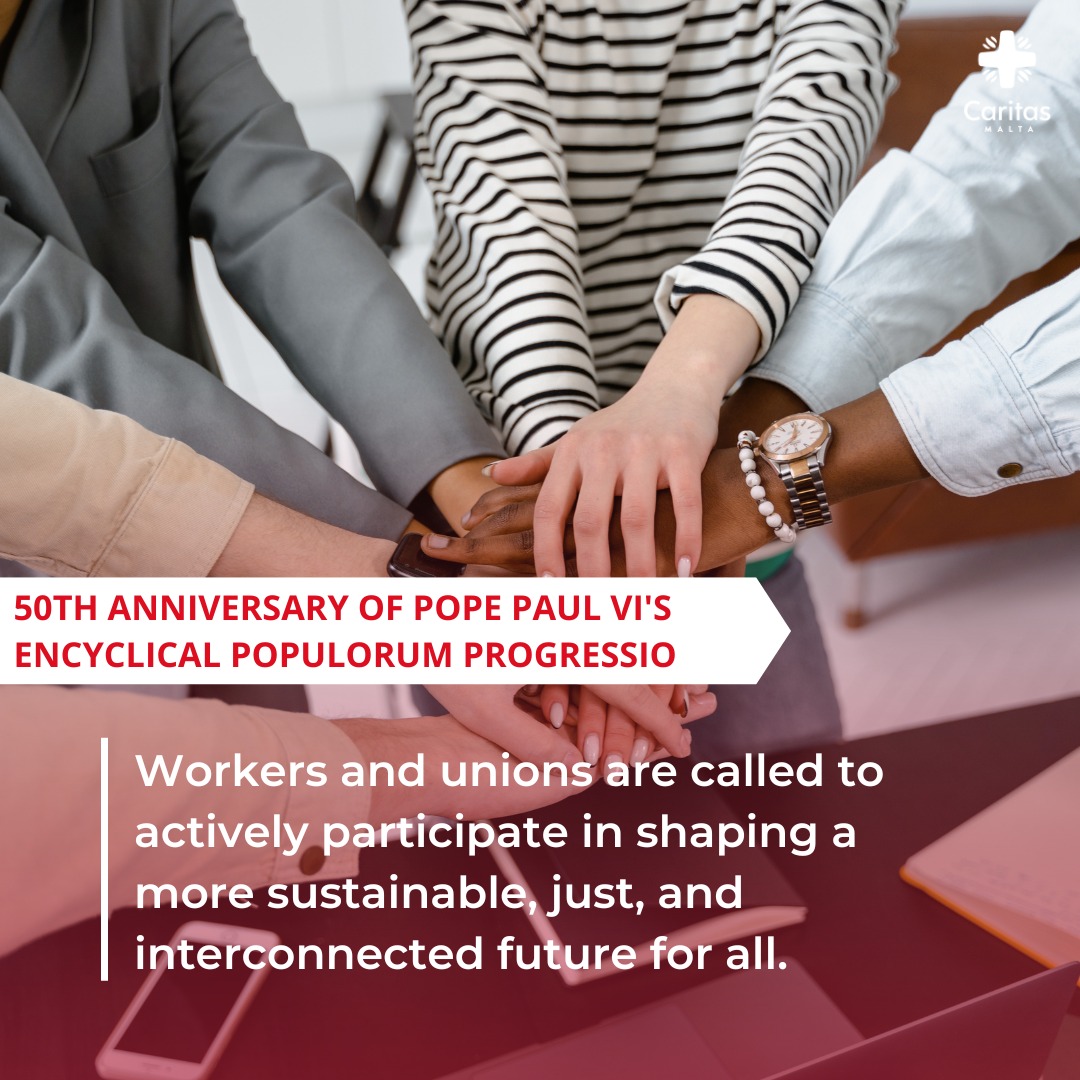Today marks the 50th anniversary of Pope Paul VI’s encyclical Populorum Progressio, it is essential to reflect on its enduring relevance and the subsequent developments in Catholic social teaching, notably in Pope Francis’ Laudato Si’. The continuity between these two documents lies in their emphasis on work as a fundamental element not only for economic development but also for the holistic well-being of individuals, families, society and the environment.
The Dignity of Work:
Blessed Paul VI laid the foundation in Populorum Progressio, asserting that development extends beyond economic growth. Work, he argued, is not just a means for economic prosperity but is the key to the cultural and moral development of individuals and society. This perspective aligns with Christian tradition, viewing work as a mission, a collaboration in the creative work of God, and a way to share in the redemptive mission of Jesus.
Integral Development:
Pope Francis, in Laudato Si’, builds upon this foundation, stressing the integral connection between work and environmental concerns. The encyclical underscores the importance of recognizing the interdependence of work and the environment for sustainable development. A shift towards renewable energy sources is urged, but it is emphasized that the burden should not fall on the most vulnerable. The triple connection of land, lodgings, and labour gains prominence, advocating for a system that benefits all.
Challenges in the Fourth Industrial Revolution:
Addressing the challenges posed by the fourth industrial revolution, characterized by rapid technological advancements, Pope Francis appeals to workers and unions to confront the utilitarian mindset that prioritizes immediate profit over social and environmental well-being. The encyclical emphasizes the need for a culture of encounter and care, with workers playing a vital role in shaping a more sustainable and just future.
Beyond GDP Growth
The Well-being Economy challenges the conventional wisdom that equates economic growth solely with prosperity. Rather than fixating on Gross Domestic Product (GDP) as the ultimate measure of success, this innovative model redirects attention to the well-being of individuals and communities. It acknowledges that a flourishing society requires more than just financial prosperity; it necessitates a holistic approach that encompasses physical, mental, and emotional well-being.
In essence, the transition to a Wellbeing Economy signifies a profound reimagining of our societal priorities. It beckons us to shift our focus from the narrow pursuit of economic growth to a broader vision that embraces the interconnectedness of human well-being and ecological health. Through this fundamental systems change, we aspire to create a world where economic success is synonymous with the collective flourishing of all life on this planet.
In a nutshell, the Well-Being economy is an alternative economical model which meet the need of the people within the means of the planet.
Dialogue and Solidarity:
A recurring theme is the necessity for sincere and profound dialogue to redefine the idea of labour and the path of development. Pope Francis recognizes the inevitability of conflict in this process but underscores the importance of workers initiating dialogues at all levels. This dialogue should include the voices of the least-heard, those from the peripheries, ensuring a comprehensive and inclusive approach.
Guarding Against Temptations:
In his address to workers and unions, Pope Francis issues three requests: to guard against collectivist individualism, urging solidarity beyond the immediate interests of members; to combat the social cancer of corruption, emphasizing the importance of maintaining integrity; and to remember their role in educating consciences in solidarity, respect, and care, promoting social virtues that foster a new global solidarity.
As we commemorate the 50th anniversary of Populorum Progressio, and acknowledge the pivotal role of work in integral human development, Pope Francis’ Laudato Si’ provides a contemporary framework for addressing the challenges of the modern world. Workers and unions are called upon not only to defend labour rights but to actively participate in shaping a more sustainable, just, and interconnected future for all.
Author: Josef Pace – Services Coordinator

